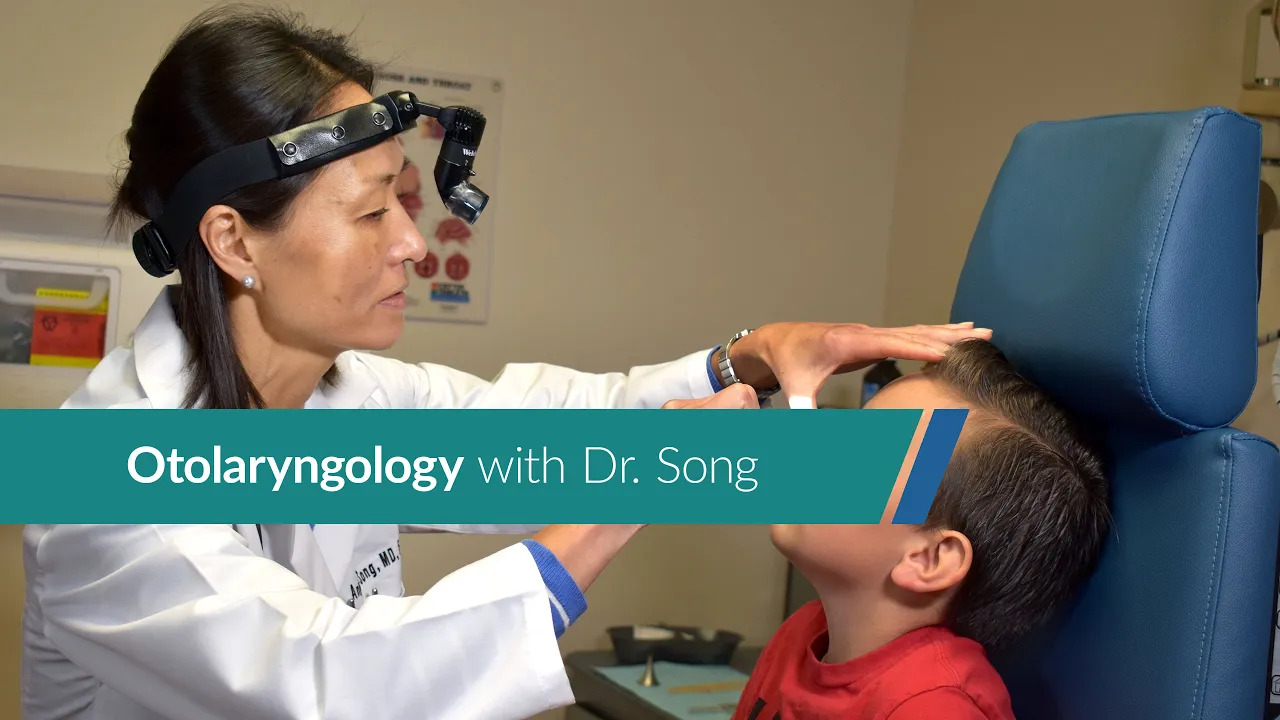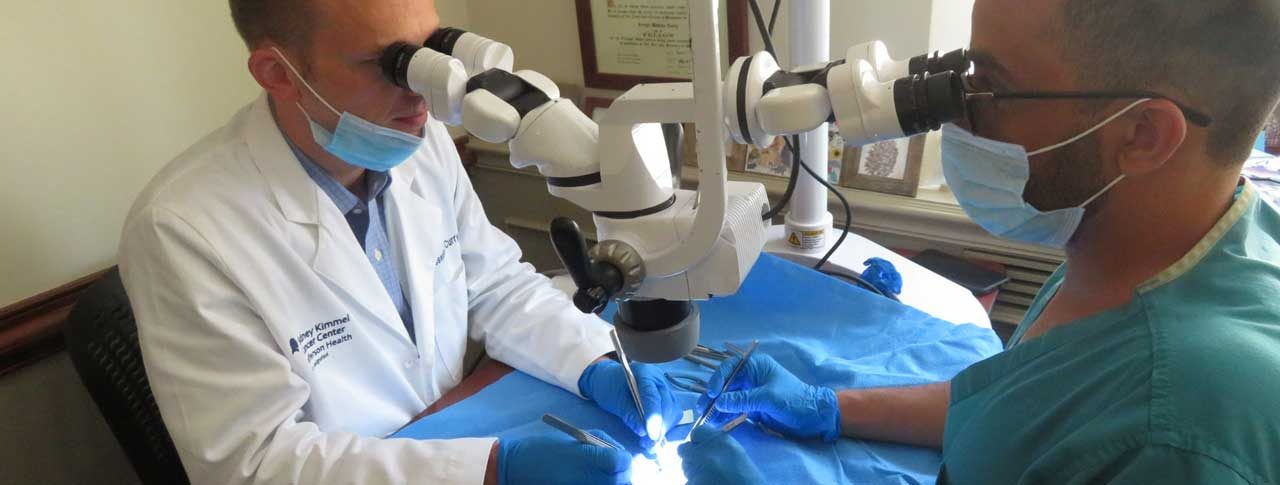What to Expect at Your Otolaryngologist Visit in Diagnosing Complex Head and Neck Conditions
What to Expect at Your Otolaryngologist Visit in Diagnosing Complex Head and Neck Conditions
Blog Article
Discovering the Area of Otolaryngology: What to Anticipate When You Get In Touch With an ENT
Otolaryngology, frequently referred to as ENT, includes the diagnosis and treatment of ear, nose, and throat problems. For those experiencing relevant concerns, getting in touch with an ENT specialist can give clearness and alleviation. Recognizing what to expect during such examinations is essential for efficient interaction and care. This summary will detail key elements of the ENT experience, including common factors for brows through and the processes included in diagnosis and treatment.

Understanding Otolaryngology: An Introduction
Otolaryngology, commonly described as ENT (Ear, Nose, and Throat) medicine, is a specific branch of medicine that focuses on the diagnosis and treatment of conditions affecting these critical areas of the body. This area includes a wide range of disorders, including those relevant to hearing, equilibrium, breathing feature, and speech. Otolaryngologists are trained to manage both surgical and medical therapies, using innovative methods and innovations. Their know-how extends past conventional disorders, attending to concerns such as allergic reactions, sinus infections, and hearing loss. Additionally, they play a critical function in the administration of head and neck cancers, providing detailed care customized to specific patient needs. In general, otolaryngology continues to be essential for keeping wellness and top quality of life in afflicted people.
Usual Reasons to See an ENT Specialist
Several people seek the know-how of an ENT professional for a variety of reasons, mirroring the diverse nature of problems that impact the nose, throat, and ear. Common issues consist of chronic sinusitis, which typically causes consistent nasal congestion and face discomfort. Allergic reactions and their linked signs and symptoms, such as itching and sneezing, additionally trigger brows through to these professionals (Otolaryngologist). Hearing loss, whether sudden or steady, is an additional significant reason for assessment. On top of that, individuals may look for examination for throat problems, consisting of persistent hoarseness or ingesting troubles. Rest apnea, defined by disturbed breathing throughout rest, is regularly addressed by ENT professionals. Each of these conditions highlights the relevance of specialized care in taking care of complex ENT-related health problems
Getting ready for Your ENT Consultation
When preparing for an ENT consultation, it is vital to collect pertinent information and consider any certain worries. People ought to assemble a thorough clinical history, including previous ear, nose, or throat issues, surgeries, and current medications. Documenting signs and symptoms-- such as seriousness, duration, and frequency-- can provide beneficial understandings for the ENT expert. Additionally, individuals must prepare a checklist of inquiries they desire to ask, making sure that all issues are addressed throughout the check out. Bringing along any type of pertinent clinical documents or test results can even more help the ENT in understanding the person's problem. Ultimately, people should confirm their appointment information, including day, time, and location, to lessen any final confusion. Proper prep work can boost the performance of the consultation and result in far better results.
What to Expect During the Consultation
As the assessment starts, the individual can expect to engage in a complete conversation with the ENT specialist concerning their signs and symptoms and case history. The specialist will ask about the duration, frequency, and severity of signs such as hearing loss, nasal congestion, or aching throat. Furthermore, the patient's previous clinical conditions, medicines, and any pertinent household history will be evaluated, assisting the specialist in forming a full understanding of the patient's wellness. The ENT might also inquire about lifestyle aspects, such as exposure to irritants or irritants. This open discussion establishes Continued a structure for the consultation, making certain that the person's problems are dealt with and setting the stage for any kind of required examinations or recommendations for therapy.
Analysis Tests and Treatments in Otolaryngology
A range of analysis examinations and treatments are vital in otolaryngology to accurately assess and diagnose conditions influencing the ear, throat, and nose. Typical tests include audiometry, which gauges hearing feature, and tympanometry, examining center ear pressure. Nasal endoscopy allows visualization of the nasal passages and sinuses, while laryngoscopy takes a look at the throat and singing cables. Imaging strategies, such as CT scans and MRIs, offer thorough sights of head and neck structures. Allergic reaction testing may likewise be conducted to recognize triggers for sinus or respiratory concerns. These diagnostic devices make it possible for ENT professionals to develop an extensive understanding of patients' conditions, making sure tailored and effective management strategies. Proper diagnosis is necessary for successful treatment results in otolaryngology.
Treatment Choices Offered by ENT Specialists
ENT professionals provide a variety of therapy alternatives tailored to address details conditions influencing the nose, throat, and ear. These treatments range from conservative methods, such as medicine and lifestyle modifications, to more invasive treatments. Allergic reactions might be taken care of with antihistamines or immunotherapy, while chronic sinus problems may require nasal corticosteroids or sinus surgery. For hearing loss, ENT professionals commonly recommend hearing aids or medical treatments like cochlear implants. In instances of throat problems, choices can include speech treatment or surgeries to eliminate blockages. Furthermore, they may provide support for handling sleep apnea, including using CPAP devices or surgical view publisher site treatments. In general, the objective is to improve patients' lifestyle through personalized treatment and effective treatment techniques.
When to Look For Follow-Up Care With an ENT
Recognizing when to seek follow-up treatment with an ENT specialist is crucial for handling recurring signs and symptoms or complications connected to ear, nose, and throat problems. People must think about arranging a follow-up visit if signs and symptoms linger in spite of first therapy, such as persistent ear discomfort, nasal blockage, or throat pain. Changes in hearing, balance issues, or uncommon nasal discharge may also warrant more evaluation. Furthermore, if a client experiences side impacts from recommended medicines or has gone through an operation, follow-up care is very important to check healing and attend to any issues. Prompt assessments can ensure efficient management of problems, avoid prospective complications, and give assurance relating to one's health. Looking for follow-up care advertises positive health and wellness administration in otolaryngology.
Frequently Asked Inquiries

What Credentials Should I Look for in an ENT Specialist?
When seeking an ENT expert, one must look for board accreditation, appropriate experience, and strong client reviews. Additionally, effective communication skills and a caring approach can substantially improve the general therapy experience.
Exactly how Do I Pick the Right ENT for My Needs?
Picking the best ENT expert involves evaluating their credentials, experience, and client testimonials (ENT Doctor). It is important to consider their interaction style and approach to treatment, guaranteeing they line up with the person's details health requirements and choices
Are There Any Type Of Risks Connected With ENT Procedures?
The risks associated with ENT treatments might include infection, blood loss, anesthetic issues, and prospective damage to bordering structures. People must review these threats with their physician to understand private issues and guarantee notified decisions.
How Can I Manage Anxiety Prior To My ENT Appointment?
To take care of stress and anxiety before a visit, individuals can exercise deep breathing workouts, imagine positive results, prepare questions ahead of time, and seek assistance from pals or family members, promoting a feeling of peace of mind and calmness.
What Should I Do if I Experience Side Impacts From Treatment?
If negative effects from treatment happen, the person must immediately report them to their doctor. Changes to therapy or additional interventions may be required to ensure security and efficiency in managing their problem - Sinus. As the examination starts, the client can anticipate to involve in a thorough conversation with the ENT expert about their signs and symptoms and clinical history. These analysis devices allow ENT professionals to create an extensive understanding of clients' problems, making certain tailored and efficient administration plans. ENT professionals use a variety of treatment options customized to address certain conditions article source influencing the nose, throat, and ear. When seeking an ENT expert, one should look for board accreditation, pertinent experience, and solid client evaluations. Choosing the ideal ENT expert entails examining their credentials, experience, and person testimonials
Report this page